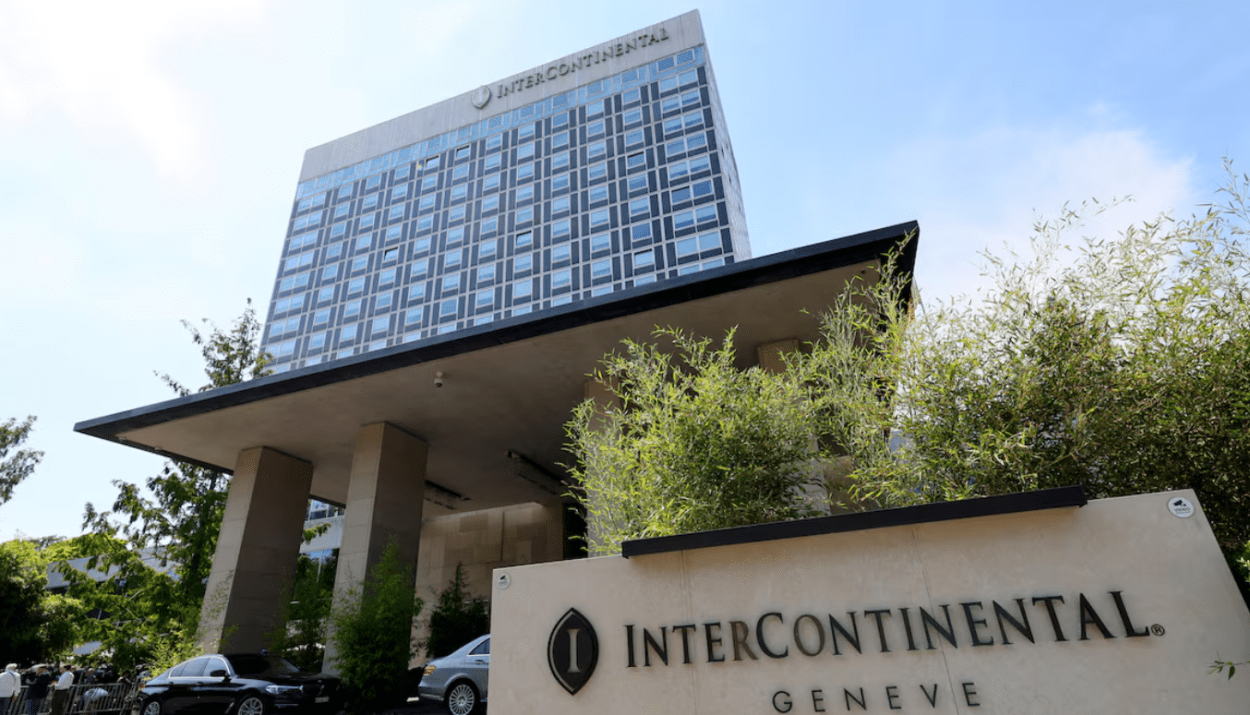A senior Iranian official criticized European proposals aimed at reviving nuclear negotiations, calling them “unrealistic” and warning that insisting on such terms could derail progress toward a new accord.
The remarks followed a round of high-level talks in Geneva on Friday between Iran and the foreign ministers of Britain, France, Germany, and the European Union — collectively known as the E3. The meeting, held amid fears of escalating conflict between Iran and Israel, failed to produce a breakthrough but signalled both sides’ willingness to keep talking.
“Insisting on these positions will not bring Iran and Europe closer to an agreement,” the Iranian official told Reuters anonymously. “Iran will review the proposals in Tehran and present its responses in the next meeting.”
Macron: Time to Accelerate
French President Emmanuel Macron confirmed that he spoke with Iran’s president, Masoud Pezeshkian, on Saturday and said both sides had agreed to accelerate negotiations. Still, Macron emphasized that “it’s up to Iran to provide every assurance that its intentions are peaceful.”
Key Disagreements
While no specifics were officially disclosed, two European diplomats said the E3 had floated the idea of launching a parallel negotiating track without US involvement, potentially allowing limited uranium enrichment but with stricter inspections, including of Iran’s ballistic missile program.
But Tehran rejected this approach. The Iranian official reiterated that the missile program is off-limits and the idea of zero uranium enrichment is a “dead end.”
“Iran welcomes diplomacy — but not under the shadow of war,” the official warned.
Outlook: Fragile but Ongoing
Despite the tough rhetoric, both Iran and Europe left the door open to future diplomacy. No new meeting date has been set, but Friday’s session in Geneva was seen as a critical first step toward gauging Tehran’s appetite for compromise — especially as Israel continues its military operations and US involvement remains uncertain.
European officials remain cautious, with one diplomat noting, “There’s no illusion that Israel will stop its strikes or that the US will rejoin talks anytime soon — but we have to keep Iran engaged.”
For now, the fate of a new nuclear accord hangs in the balance — between European pressure, Iranian resistance, and the looming threat of war in the region.
Disclosure: This article does not represent investment advice. The content and materials featured on this page are for educational purposes only.
Related:
IMF Warns: European Economy Faces Risk of Stagnation
Why Oil Prices Aren’t Surging Despite the Israel-Iran War
Trump Privately Approved Attack Plans for Iran but Has Withheld Final Order
Iran Refuses to Surrender as Trump Mulls Strike: Tensions Surge in Middle East Conflict
Trump Demands Iran’s ‘Unconditional Surrender,’ Escalates Pressure in Israel-Iran Conflict
US and UK Seal Trade Deal — but Steel Tariffs Unresolved
Trump Exits G7 Early as Leaders Urge Mideast Ceasefire: What the Summit Delivered
OpenAI considers antitrust action against Microsoft amid tensions
What Is Trump’s ‘Revenge Tax’ — and Why It’s Scaring Off Foreign Investors










